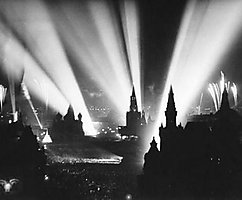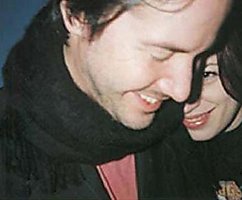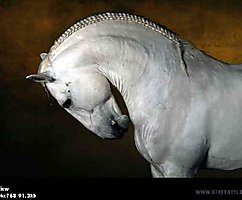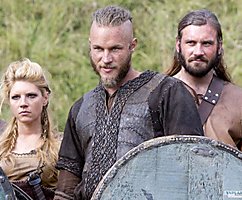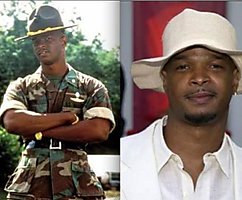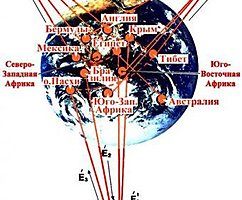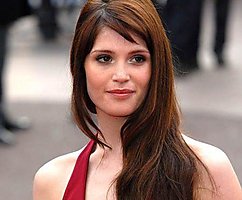Sergei Kapitsa: the purpose of this education is to teach understanding
 Bashny.Net
Bashny.Net
Sergei Kapitsa — physicist, demographer, popularizer of science, man-age, the great contemporary of the great people and witness incredible change.We tried to choose the most important thoughts and interesting stories of the great Russian scientist.

The world's first accelerator "as a child I was drawn to his father's lab, and the father sometimes took me with him. Somehow he led me to the room where stood the world's first accelerator designed and built by a disciple of father Cocroft and engineer Walton; it was first shown as a beam of accelerated particles, it is possible to split the nuclei of lithium. It was quite a complicated installation, the voltage which was reached half a million volts. Underneath all the giant device, stretching on two floors, was a small cabin, where the experimenter fluorescense on the screen was observed through a microscope particles from nuclear reactions. Such simple means, without any electronics, lots to see!
This little Cabinet was attracting me, but I even look back I was afraid of intimidating black box, closed by a dense matter, which housed the experimenter. My father told me that the first climbed Rutherford, and when it is energized, saw nuclear fission caused by the beam of accelerated particles. I never visited the place of the experimenter in the world's first accelerator, although it could! Then in my scientific life, I had a lot to do with electron accelerators, but then all this equipment looked quite different." "Izvestia", 2003
Pranks of a critical mind "Many believe that the most important is freedom, but the whole experience of history indicates that the increased freedom, especially in the realm of ideas and spiritual values, must be accompanied by equally great responsibility. That is why the antics of lively and critical mind and daring naughtiness of a young person, should always be prohibited from the outside, and to be bound by their own sense of responsibility". From the Preface to the book "Smart tricks".
Disciplined thinking "Our development is in the knowledge is the main resource of mankind. So, to say that our growth is limited by depletion of resources is a very rough formulation of the question. In the absence of disciplinariann thinking there is a lot of all kinds of horror stories. For example, a couple of decades ago seriously talked about the depletion of stocks of silver, which is used for the manufacture of a film: that in India, in bollywood, removed many films that soon all the silver on earth will be gone in the emulsion films. Would, perhaps, have been, but then invented magnetic recording, which does not require silver. Such assessments — the fruit of speculation and sonorous phrases, which are designed to capture the imagination — are the only advocacy and alarmist function".
The jewel in the muck "the Internet shows a huge gap between technology and content. Technology higher, but the content absolutely does not correspond to them. Find in this pile of manure one pearl grain is almost impossible.
When people in ancient times had carving on the wall inscriptions with the provisions of his chieftain or leader or when they wrote the sacred books, they were written very briefly, wisely, and because of the ages." "Chaskor", 2012
The object of the present education "is a Good question: how to teach — knowledge or understanding? My entire teaching practice on the PTI shows that it is necessary to teach understanding. In our Institute started physics, then it has spread to other faculties. We didn't have tickets, for the exam you can come with any manuals and records, notes, only, it was impossible to consult with a friend.
People used to come with a question, which he himself had prepared and told me that he understands the subject. It was not easy to teach the students and teachers, but that was our goal. Because knowledge is very easy to get from the Internet, from different sources, too many of them and they are too flexible, and understanding is what remains.
This is well expressed by Vaclav Havel, the Czech President, dissident: "the more I know the less I understand." It is very aphoristically expressed the gap between the level of knowledge and level of understanding. The goal of this education is to teach understanding."
Age or life "We are at the threshold of a fundamentally new demographic situation on the planet. Overpopulation and the demographic crisis the Earth is not threatened. By 2100 the population stabiliziruemost at the level of 10-12 billion people, a third of the population will be over 65 years of age, 8% were older than 80 years. In the end, will radically change the relationships between generations and value system. Obviously, will change the structure of employment, decrease aggressiveness. I think that will be possible, the conflict of the Christian West and the Muslim East. This today is not a religious clash, and the conflict of the Nations, which are at different stages of the age scale. After all, "a Project of Mohammed", as noted by Max Weber, it reduced Christianity to the poor. Because Islam does not allow nor beggary, nor usury.
If you put the story on adopted segments — the Ancient world, Middle ages, modern history, contemporary history — it turns out that each fit in the amount of 10 billion people. But to continue to compress the timeline is impossible. The time may be shorter than a single human life. What happens? Living conditions now are radically change throughout one life. Hence the scrapping of everything — the collapse of empires, the destruction of the family, the social foundations of...".
Fathers and sons "Science and religion should be able to coexist with each other. There is an extreme negation of one another, but this is not a constructive path. After all, before of religion, the monasteries were born what is called modern science. Such continuity is. However, the next generation always believes the previous is untenable — this is the eternal problem of children and fathers. But without it there would be no development." Ogonek, 2010
Primitive instincts "once I gave a lecture, go to his office. Suddenly felt a strong blow on the head from behind. There was no pain, I even thought someone abruptly slammed in my ear, such a stupid joke. I turned around and took a second blow to the head. Only then I realized that some guy hits me with an axe. And then something happened, something in me exploded, some sealed primal instincts. I don't remember, I just remember waking up in a matter of seconds lying on the top, and the axe is in my hands.
It was a small tourist hatchet, but very sharp. This guy below me floundering, fighting, and I feel that he is very strong. I swung — and then realized that it was not educational — in the eyes of students to kill a man. What to do? To let go of it, too, is impossible! I'm holding an ax and thinking to beat. All this is, again, fractions of a second. It's a movie they flounder about 15 minutes, and everything is nothing. Decide to hit the eyes.
But this is a terrible blow, I'd killed a man, previously from hacking it, and me then this would have had to live. Then I decided to punch him in the teeth. In the meantime, the wife was just put in my teeth, and I knew how expensive it is. Then I turned the axe and struck him with a butt on his forehead. Hit hard, he immediately calmed down and lay for the deck. I stood up, told the students to look for him because he's dangerous, and went to the Department.
My assistant Natalia then remembered what was their terror when the door opened and in came Professor Kapitsa, with an axe and covered in blood. I told him to call the police and an ambulance, but then again I don't remember anything. I was taken to Botkin. Shortly before I was persuaded to undergo surgery for the sciatica, but I didn't want to touch the spine. And here I lay in the gloomy state and see the familiar neurosurgeon, who says: "I wanted your spinal cord, and I got a headache". Such is the horror".
Ethical revolution "Science has changed the goals of man, and became the only global system of understanding the world. Happened the ethical revolution from the power of authority to understand the objective laws of nature. In the nineteenth century religious, ethical, national representation was tied to the same cultural tradition that in ancient times. In the twentieth century science has led humanity to realize its unity. This is the most important signal that the science has taken civilization. Among other signals — the theory of Darwin and Marx, who knocked over a static picture of the world and give a presentation about evolution. We know that the stars and the Earth is ruled by some laws. Because people are so interested in the question of life in the Universe." "Izvestia", 2003
"The crisis of transfer of "Obvious-unbelievable" coincided with the crisis of attitudes in the public consciousness, but science will survive any crises. Now, thanks to the efforts of producer Svetlana Popova transmission reappeared on Russian TV. Next year marks 40 years "unbelievable". I — 85. So, I'm almost half of my life this show. Scary to imagine!”. "Evening Moscow", 2012. published
P. S. And remember, only by changing their consumption — together we change the world! ©
Source: theoryandpractice.ru/posts/5233-zadacha-nastoyashchego-obrazovaniya--nauchit-ponimaniyu-9-vyskazyvaniy-sergeya-kapitsy

The world's first accelerator "as a child I was drawn to his father's lab, and the father sometimes took me with him. Somehow he led me to the room where stood the world's first accelerator designed and built by a disciple of father Cocroft and engineer Walton; it was first shown as a beam of accelerated particles, it is possible to split the nuclei of lithium. It was quite a complicated installation, the voltage which was reached half a million volts. Underneath all the giant device, stretching on two floors, was a small cabin, where the experimenter fluorescense on the screen was observed through a microscope particles from nuclear reactions. Such simple means, without any electronics, lots to see!
This little Cabinet was attracting me, but I even look back I was afraid of intimidating black box, closed by a dense matter, which housed the experimenter. My father told me that the first climbed Rutherford, and when it is energized, saw nuclear fission caused by the beam of accelerated particles. I never visited the place of the experimenter in the world's first accelerator, although it could! Then in my scientific life, I had a lot to do with electron accelerators, but then all this equipment looked quite different." "Izvestia", 2003
Pranks of a critical mind "Many believe that the most important is freedom, but the whole experience of history indicates that the increased freedom, especially in the realm of ideas and spiritual values, must be accompanied by equally great responsibility. That is why the antics of lively and critical mind and daring naughtiness of a young person, should always be prohibited from the outside, and to be bound by their own sense of responsibility". From the Preface to the book "Smart tricks".
Disciplined thinking "Our development is in the knowledge is the main resource of mankind. So, to say that our growth is limited by depletion of resources is a very rough formulation of the question. In the absence of disciplinariann thinking there is a lot of all kinds of horror stories. For example, a couple of decades ago seriously talked about the depletion of stocks of silver, which is used for the manufacture of a film: that in India, in bollywood, removed many films that soon all the silver on earth will be gone in the emulsion films. Would, perhaps, have been, but then invented magnetic recording, which does not require silver. Such assessments — the fruit of speculation and sonorous phrases, which are designed to capture the imagination — are the only advocacy and alarmist function".
The jewel in the muck "the Internet shows a huge gap between technology and content. Technology higher, but the content absolutely does not correspond to them. Find in this pile of manure one pearl grain is almost impossible.
When people in ancient times had carving on the wall inscriptions with the provisions of his chieftain or leader or when they wrote the sacred books, they were written very briefly, wisely, and because of the ages." "Chaskor", 2012
The object of the present education "is a Good question: how to teach — knowledge or understanding? My entire teaching practice on the PTI shows that it is necessary to teach understanding. In our Institute started physics, then it has spread to other faculties. We didn't have tickets, for the exam you can come with any manuals and records, notes, only, it was impossible to consult with a friend.
People used to come with a question, which he himself had prepared and told me that he understands the subject. It was not easy to teach the students and teachers, but that was our goal. Because knowledge is very easy to get from the Internet, from different sources, too many of them and they are too flexible, and understanding is what remains.
This is well expressed by Vaclav Havel, the Czech President, dissident: "the more I know the less I understand." It is very aphoristically expressed the gap between the level of knowledge and level of understanding. The goal of this education is to teach understanding."
Age or life "We are at the threshold of a fundamentally new demographic situation on the planet. Overpopulation and the demographic crisis the Earth is not threatened. By 2100 the population stabiliziruemost at the level of 10-12 billion people, a third of the population will be over 65 years of age, 8% were older than 80 years. In the end, will radically change the relationships between generations and value system. Obviously, will change the structure of employment, decrease aggressiveness. I think that will be possible, the conflict of the Christian West and the Muslim East. This today is not a religious clash, and the conflict of the Nations, which are at different stages of the age scale. After all, "a Project of Mohammed", as noted by Max Weber, it reduced Christianity to the poor. Because Islam does not allow nor beggary, nor usury.
If you put the story on adopted segments — the Ancient world, Middle ages, modern history, contemporary history — it turns out that each fit in the amount of 10 billion people. But to continue to compress the timeline is impossible. The time may be shorter than a single human life. What happens? Living conditions now are radically change throughout one life. Hence the scrapping of everything — the collapse of empires, the destruction of the family, the social foundations of...".
Fathers and sons "Science and religion should be able to coexist with each other. There is an extreme negation of one another, but this is not a constructive path. After all, before of religion, the monasteries were born what is called modern science. Such continuity is. However, the next generation always believes the previous is untenable — this is the eternal problem of children and fathers. But without it there would be no development." Ogonek, 2010
Primitive instincts "once I gave a lecture, go to his office. Suddenly felt a strong blow on the head from behind. There was no pain, I even thought someone abruptly slammed in my ear, such a stupid joke. I turned around and took a second blow to the head. Only then I realized that some guy hits me with an axe. And then something happened, something in me exploded, some sealed primal instincts. I don't remember, I just remember waking up in a matter of seconds lying on the top, and the axe is in my hands.
It was a small tourist hatchet, but very sharp. This guy below me floundering, fighting, and I feel that he is very strong. I swung — and then realized that it was not educational — in the eyes of students to kill a man. What to do? To let go of it, too, is impossible! I'm holding an ax and thinking to beat. All this is, again, fractions of a second. It's a movie they flounder about 15 minutes, and everything is nothing. Decide to hit the eyes.
But this is a terrible blow, I'd killed a man, previously from hacking it, and me then this would have had to live. Then I decided to punch him in the teeth. In the meantime, the wife was just put in my teeth, and I knew how expensive it is. Then I turned the axe and struck him with a butt on his forehead. Hit hard, he immediately calmed down and lay for the deck. I stood up, told the students to look for him because he's dangerous, and went to the Department.
My assistant Natalia then remembered what was their terror when the door opened and in came Professor Kapitsa, with an axe and covered in blood. I told him to call the police and an ambulance, but then again I don't remember anything. I was taken to Botkin. Shortly before I was persuaded to undergo surgery for the sciatica, but I didn't want to touch the spine. And here I lay in the gloomy state and see the familiar neurosurgeon, who says: "I wanted your spinal cord, and I got a headache". Such is the horror".
Ethical revolution "Science has changed the goals of man, and became the only global system of understanding the world. Happened the ethical revolution from the power of authority to understand the objective laws of nature. In the nineteenth century religious, ethical, national representation was tied to the same cultural tradition that in ancient times. In the twentieth century science has led humanity to realize its unity. This is the most important signal that the science has taken civilization. Among other signals — the theory of Darwin and Marx, who knocked over a static picture of the world and give a presentation about evolution. We know that the stars and the Earth is ruled by some laws. Because people are so interested in the question of life in the Universe." "Izvestia", 2003
"The crisis of transfer of "Obvious-unbelievable" coincided with the crisis of attitudes in the public consciousness, but science will survive any crises. Now, thanks to the efforts of producer Svetlana Popova transmission reappeared on Russian TV. Next year marks 40 years "unbelievable". I — 85. So, I'm almost half of my life this show. Scary to imagine!”. "Evening Moscow", 2012. published
P. S. And remember, only by changing their consumption — together we change the world! ©
Source: theoryandpractice.ru/posts/5233-zadacha-nastoyashchego-obrazovaniya--nauchit-ponimaniyu-9-vyskazyvaniy-sergeya-kapitsy
Tags
See also
STALINGRAD 1942/43 - VOLGOGRAD 2013
20 exciting science series about all
20 very interesting research series about everything
Biker
Loneliness worse than pain—psychological experiment
Supernatural human abilities
Sergei Kapitsa: Masterpieces for the money not born
Great people






